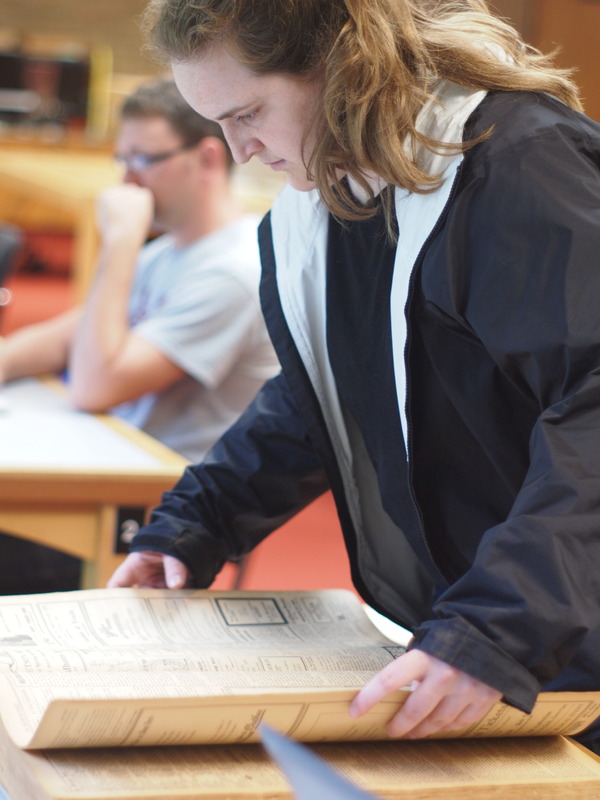Archives, Cursive, and Mental Time Travel (by Erin McGlashen)
Reading through memories, letters, pictures and memorabilia from just about 100 years ago, it is amazing how time flies when you can immerse yourself into the experiences of a people whom you will never meet and yet manage to have huge impacts on the way you think about things. I also have the great fortune to work with an excellent group of people, and I am proud to see where our over-exuberant archive scrounging has taken us!
Digging through archives is a weirdly invasive process, if I think about it too carefully. Lives well lived leave behind bits and pieces that people wouldn’t always think of as important, especially if they were keeping something like a journal just for their own personal use. I, for one, desperately wish I had the attention span to take up scrapbooking now just because of how fascinating it is to scan through these pieces of people’s lives which were chosen as important to them specifically. Inside jokes, the real significance of otherwise ordinary people, the snapshot memories that perhaps make sense to one person alone- all these things come together in the collections and paint pictures of people we’ll never have the opportunity to meet, but who had so many experiences that we can hardly comprehend.
Also, apparently the reason we still learn cursive in elementary school is just in case we grow up and decide to dig through historical archives and have to decipher people's handwriting. You would not believe the number of times I’ve had to go back and reread a word or phrase and try to figure out what they were trying to say. Was it a phrase that was common at the time but has since been lost to antiquity? Were they just bad at spelling? Is that a “G” or a “D,” and why are the phrases so dramatically different for either letter?! Unfortunately, I find out that what I thought the author was trying to convey was actually horribly misinterpreted, which is worrying for someone trying to come to conclusions about broad experiences based on a faithful comprehension of these materials. An example of this was the misinterpretation of “the German people” as the phrase “Yeoman loophole” instead. It’s a struggle, and it’s frequently frustrating, but I’d be lying if I claimed it didn’t keep things interesting!
Another thing I’ve learned is the strange merging of time and experience that occurs when one is thinking about the personal experiences of historical individuals. One of the first few days on the job, our group was tasked with reading an article on the war experiences of the “Doughboys,” and it affected me in a way that I was not expecting. There is something very sobering about reading American experiences of trench warfare, looking up to realize that it is raining outside, and realizing you are wrapped in a warm blanket and slippers and don't have to worry about bombs, rats, mud, gas, trench foot or death. A person can read about the horrors of war, can see the photographs that come from that horrible experience, watch any number of movies that try to portray that horror, and never truly have any comprehension of what those brave men and women lived through.
It's an honor and a privilege to have the opportunity to explore the brief glimpses of these lives.

